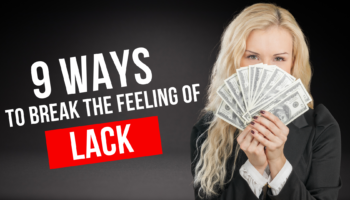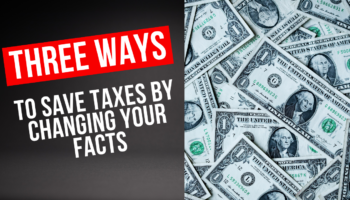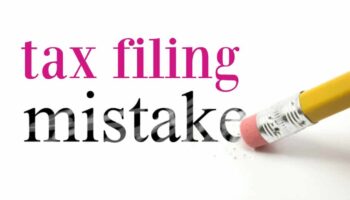I clearly recall when I immigrated to Canada to join my wife. As new Canadians, we started with no income.
As I recall at the time, our rent of a bachelor’s apartment was less than $500 per month. Then we started doing menial jobs, earning approximately $7 per hour working part-time. In a good week, we may get a combined 20 to 25 hours of work, enough to take care of the rent and some food. At the end of the month, we had no disposable income.
When we relocated to Toronto, there was more work at a higher rate of approximately $10 per hour. In a good week, I will get 20 to 40 hours of work.
We upgraded and lived in a 3-bedroom apartment building that was shared with two other people. This was a wise move as it kept our rent at approximately $600 per month. At this point, we had more income. Rent was still relatively low but the cost of living was higher in a big city like Toronto. So at the end of the month, we still had no disposable income.
Our next move was to a 2 bedroom apartment that we also shared. Shortly after that, we moved to a spacious 1 bedroom basement unit. Rent was $1,000 but at this point, we both had full-time jobs with a combined income of approximately $75,000.
We bought new furniture to fill the space in our new home. We had a car to maintain. Travel costs to and from work increased. We bought new clothes to match our new income level. We hosted house parties to impress friends. We had student debt to pay. At the end of the month, we had no disposable income.
Then we made the first big move a year later by buying our first home. We now had a fully detached 4-bedroom home on a combined income of approximately $100,000. Our expenses more than doubled with mortgage payment, property taxes, utilities, home maintenance, etc.
Then came children and more expenses on childcare costs, food, children’s activities, travel, birthday parties, etc. At the end of the month, we had no disposable income.
Nine years later, we upgraded to a slightly bigger 4-bedroom home in a better neighborhood. In general, expenses were higher, income continued to increase and we still had no disposable income at the end of the month.
This is a pattern that we are all familiar with. We regularly see our friends and colleagues upgrade their standards of living as they earn a higher income.
But, the more money you make, the same problems you have.
For me, it was constantly living from paycheck to paycheck.
It is called Lifestyle inflation.
What Is Lifestyle Inflation?
We are all familiar with the term “Inflation”.
Inflation is the rate at which the general level of prices for goods and services is rising. I wrote on this earlier and you can read it here.
Lifestyle inflation happens when your household spending rises to match your rising income. In other words, your lifestyle expands to match the extra income from your paycheck.
Often times, it happens without you noticing it. It sneaks up on you. A little raise here, a bonus there, and pretty soon your expenses get out of control.
It’s so easy to get caught up in lifestyle inflation. After all, you’ve worked hard to earn the extra income and you deserve to reward yourself with a bigger home, nicer car, designer clothes, and luxury vacation.
The challenge is if you’re spending all the extra money you’re making, it’s nearly impossible to save. If you can’t save, you can’t invest and if you can’t invest, you can hardly get ahead.
No matter how much income you bring in, you will end up in the same place with no savings and no investments if you continue to grow your expenses to match your growing income.
A recent poll by BDO Canada published in the Financial Post found that more than half of Canadians live paycheck to paycheck and more than a third have no retirement savings, thus, boosting the pressure to work longer.
Lifestyle inflation is certainly one of the reasons why most Canadians live paycheck to paycheck. With many people choosing to keep up appearances rather than stash money away for a rainy day, it’s easy to see how.
So, where is all the extra money going instead?
The common culprits are hefty mortgages as most people upgrade to bigger houses in nicer neighborhoods. Luxury vacations. New wardrobe to match a new lifestyle. Childcare costs and fine dining.
It’s also common for new graduates fresh out of college to fall into the trap of lifestyle inflation. As they land a new job, it’s easy for them to justify eating in fancy restaurants rather than the frozen pizza they’ve endured for the last couple of years. And soon, they are buying a brand new car, moving into a brand new condo in Downtown Toronto and now given into the pressure to live 10 to 25 years ahead of their earnings.
3 Ways to Avoid Lifestyle Inflation
1. Resist the pressure to keep up with the Joneses.
This one is huge. It is huge because it is more of a money mindset. Because we are social animals, a lot of our money life is also about how we show up in society.
So, there is always enormous pressure to be like the neighbor next door even though we know nothing about this neighbor.
The fact that your friend’s daughter is playing soccer, basketball, and taking music classes doesn’t mean your daughter needs to do it too. You’re still a good parent if your child’s only extracurricular activity is swim lessons at the community pool.
You should not devalue your March break staycation or road trip because you were at a party where friends and other guests shared their experiences on a 14-night European cruise.
In her best-selling book Love Your Life, Not Theirs, Rachel Cruze says…
“Too many people allow cultural expectations and other people to dictate their own values and family priorities.”
This is so true. And it is worse today with the additional pressure from social media. As you scroll through the social media news feed, it’s so easy to take a peek into someone else’s life and compare yourself to their highlight reel.
So, resist falling into the trap of letting the way others spend their money dictate the way you spend yours. The truth is your friends and the Joneses you’re trying to keep up with are probably broke trying to keep up with others.
2. Don’t take on new debt because you can “afford” it.
This is particularly important when it comes to non-tax-deductible consumer debt.
Very often, as soon as we get a raise, we can afford to upgrade our home, buy a new car, or new furniture all on debt. With the extra income, we can justify making the extra payment on the new debt.
Just because you can “afford” the monthly payment on something does not mean you can truly afford to buy it. The interest alone could make you pay far more than the original price.
When it comes to debt, the first thing you should do is to understand the difference between tax-deductible debt and non-tax-deductible debt.
Tax-deductible debt is generally debt incurred to earn income. Only take on this type of debt if the income stream is predictable. If not, you must exercise great caution.
Non-tax-deductible debt is generally consumer debt. Never take on new debt of this nature. If you carry this type of debt, you must focus on paying it off as soon as possible.
3. Know your GAP and live on a budget.
I wrote about the GAP in an earlier article. You can read it here.
One of the greatest mistakes I made and one that most people make on the path to financial freedom is the lack of a strong focus on the “GAP”. The math equation below illustrates what the “GAP” is:

To avoid lifestyle inflation, you need to obsess about the “GAP”. If you do this, you will automatically pay attention to all the variables that make up the “GAP” — your income, your expenses, and your taxes.
By doing this, you will live within your means and you will increase your savings rate. Living on a budget will allow you to accomplish this. One of the keys to winning with money is simple: Budget!
With your budget in place, you’ll know exactly how much you can spend and keep lifestyle inflation at bay! A budget does not restrict you, rather it gives you permission to spend money…on those things, you’ve already budgeted for.
In Conclusion
Lifestyle Inflation will cause you more harm than good.
Understand what it is.
Be vigilant.
And instead of increasing your lifestyle when your income grows, increase your contributions to your financial goals!






